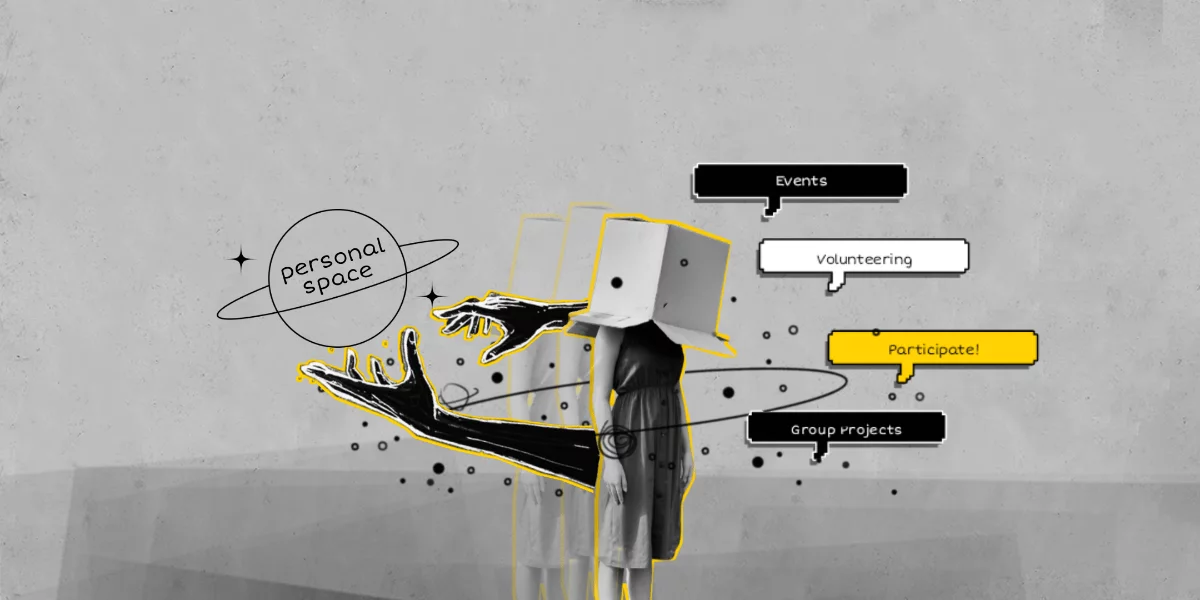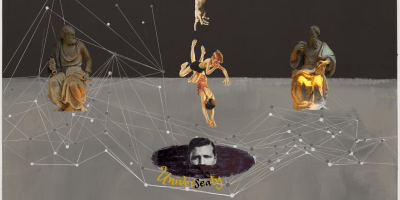
Although a university is an ideal place full of diverse people, values, such as openness to communicate, integration in a group, are expected of everyone, regardless of their personality.
The ever-present task of being social is believed to be the key to success. And as a result, some people, particularly introverts, get lost in the world of social “chaos.”
Introverted people focus on internal things, feelings and thoughts rather than seeking external stimulations—interactions with others. Unlike extroverts who enjoy spending time with others, introverts prefer solitude and calmness. Kristina Shatvoryan, an EC junior, considers herself a true introvert who finds pleasure in writing and reading. Socializing is by far not the most exciting part of student life for her. “As an introvert, I love quality alone-time,” says Kristina. “I enjoy being with myself and my thoughts.”
She also did not prioritize making friends when she first came to AUA; she prefers being on her own and counts on herself to bring joy into her life. “I feel like I have never looked for friends,” laughs Kristina. “I have rather been ‘adopted’ by some great people.”
Including introverted students in class discussions and activities is a vital task for instructors. Dr. Brent Anders, an adjunct lecturer in the EC department at AUA, has a unique stand on how introverted students can succeed in a university. Being an introvert himself, Professor Anders shares his pedagogical perspective on how to organize the class so that introverted students do not fall behind their extroverted peers. “The purpose of a good class is to have an engagement where students are encouraged to come out of their bubble and not be introverted all the time,” he explains.
Dr. Anders recalled his past experience in the college and he understands how difficult it is for introverted students to survive in the extroverted classrooms. Introverts can still succeed, but they have to realize certain things about themselves. “Acknowledging and realizing that they might have anxiety will help the introverts to look for ways to overcome it,” suggests Dr. Anders.
Another pressure on introverted students is the participation grade that forces them to contribute to the class discussions and express their ideas verbally. For most introverts, getting put on the spot in class can be traumatic and might increase their anxiety, which explains their limited participation. Often, extroverted and enthusiastic students take up a lot of the discussion time and leave almost none for their introverted peers to voice their thoughts.
Dr. Anders views the participation grade as a working strategy that gives introverted students an opportunity to share their thoughtful ideas, which they would prefer not to share in a class.“The idea of encouraging class participation is not to make students uncomfortable by forcing them to talk, but to make them understand why they need to express themselves and how it will benefit them,” notes Professor Anders.
What Kristina dislikes the most about being an introvert are her progressing insecurities and constant anxiety. “I find it difficult to speak up during classes most of the time,” shares Kristina. Professor Anders ensures that that is why the professors are there to make the environment safe so that the “students don’t need to worry about saying something and feeling embarrassed or uncomfortable.”
We live in a society that values leadership skills, ambition, forwardness and spontaneity, which are essential characteristics of extroverted people. As these are strongly valued, it can make working life hard for the humble introvert. Yet, it is still possible for introverts to succeed (in a conventional meaning of the term). “To succeed in the 21st century, students need to have 21st-century skills which are public speaking and communication skills, even if they don’t like it,” remarks Professor Anders. Taking risks and being aware of how much it will change your entire perception of who you are and what your capabilities are.













